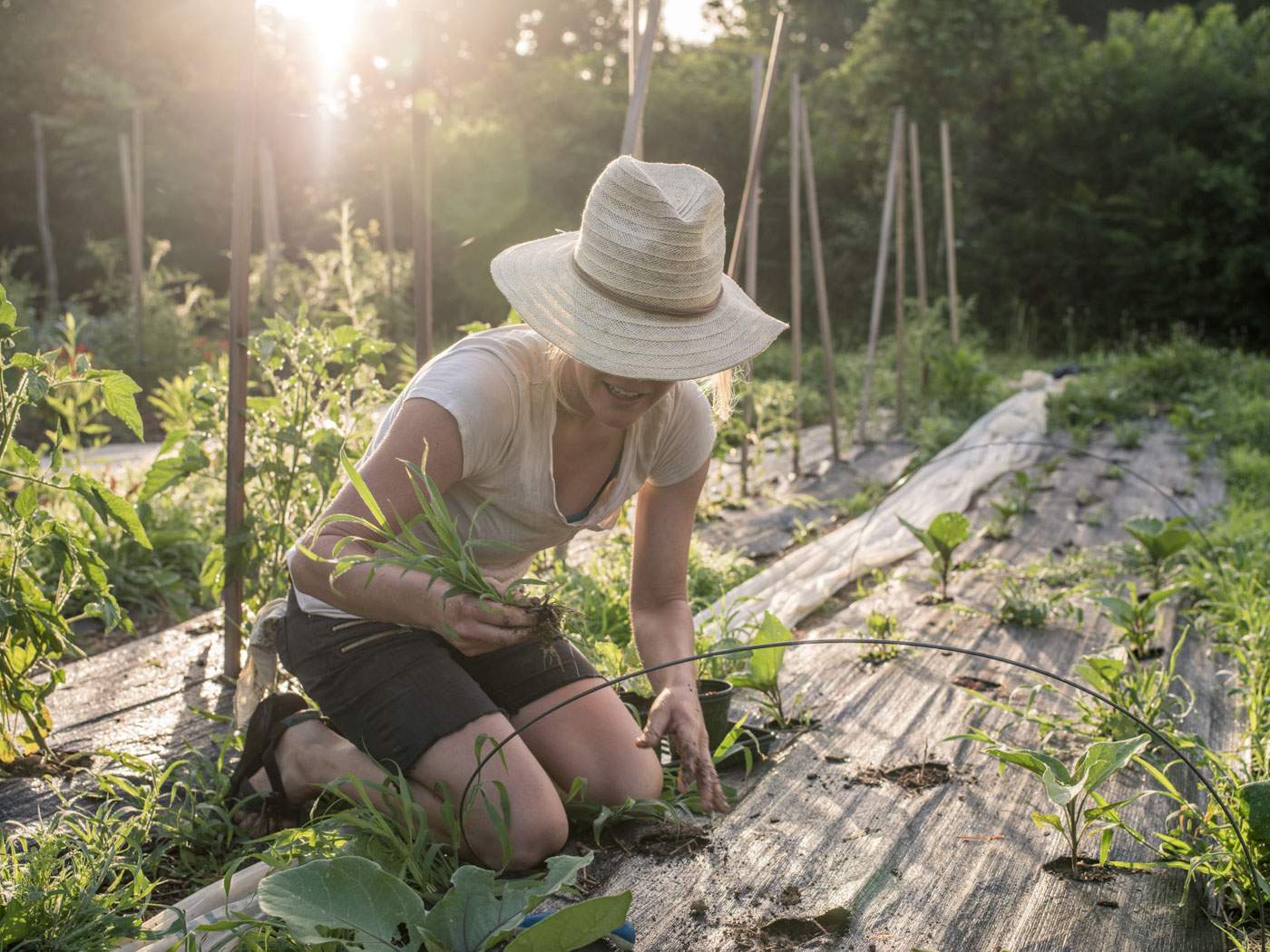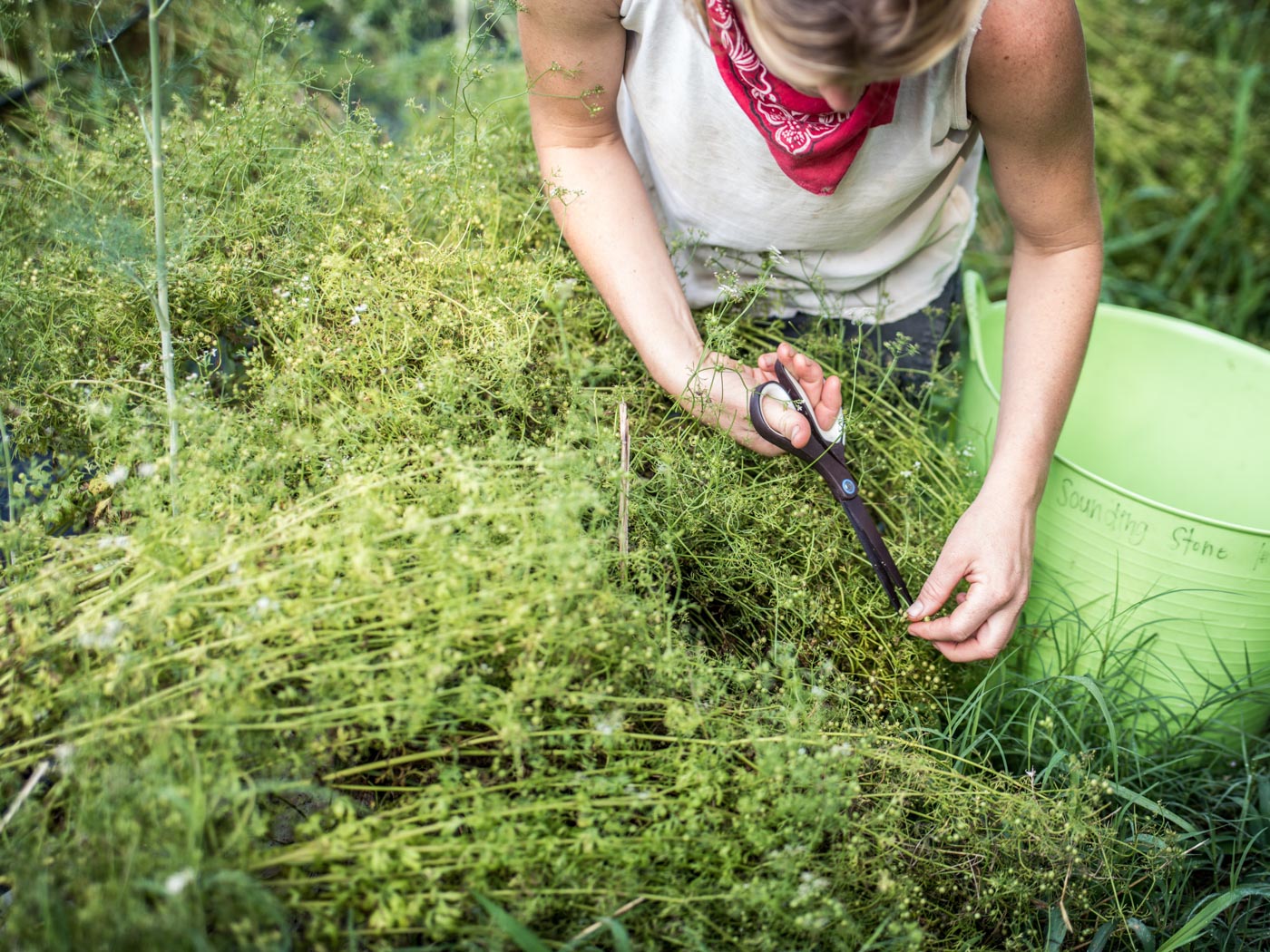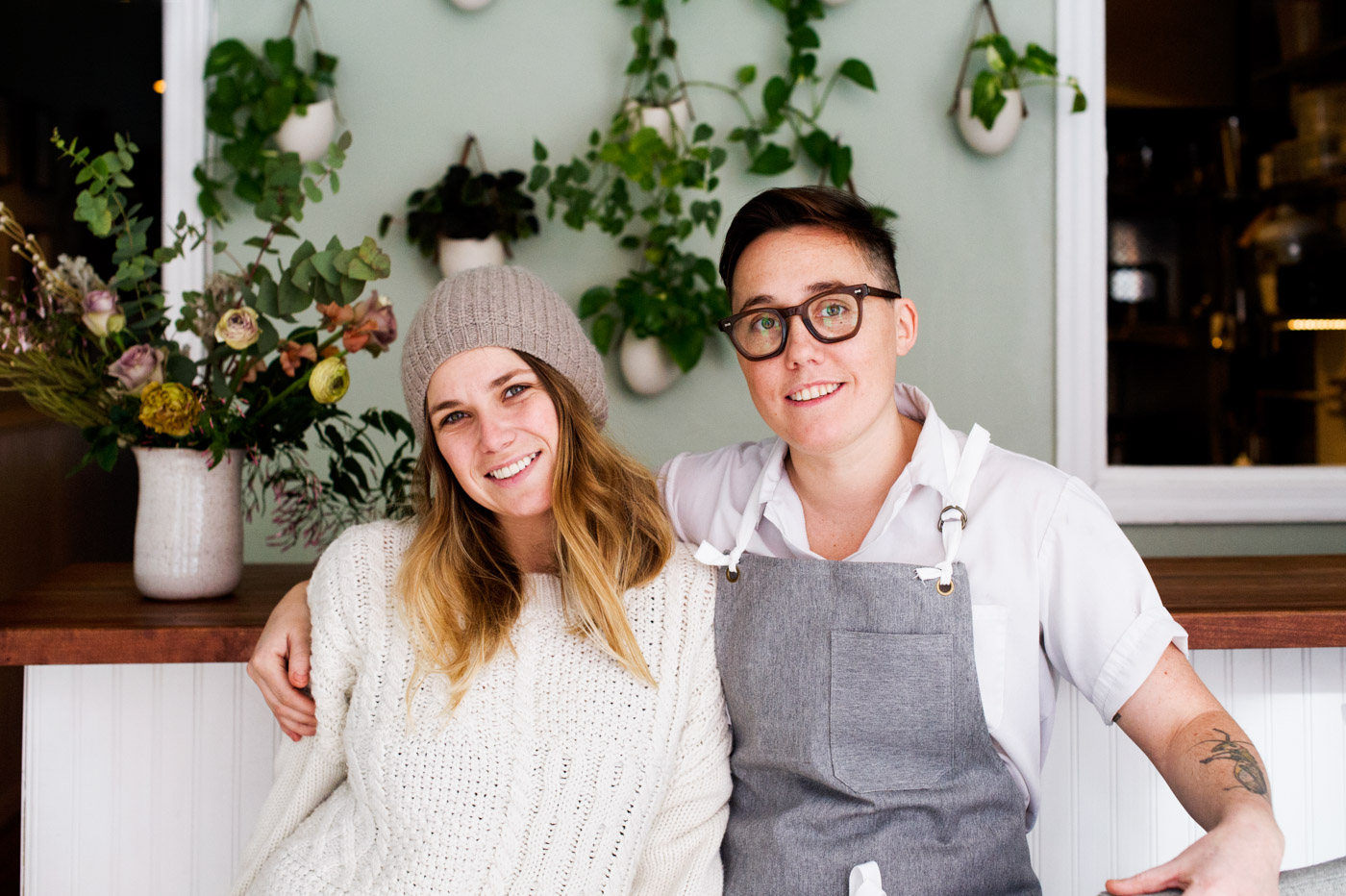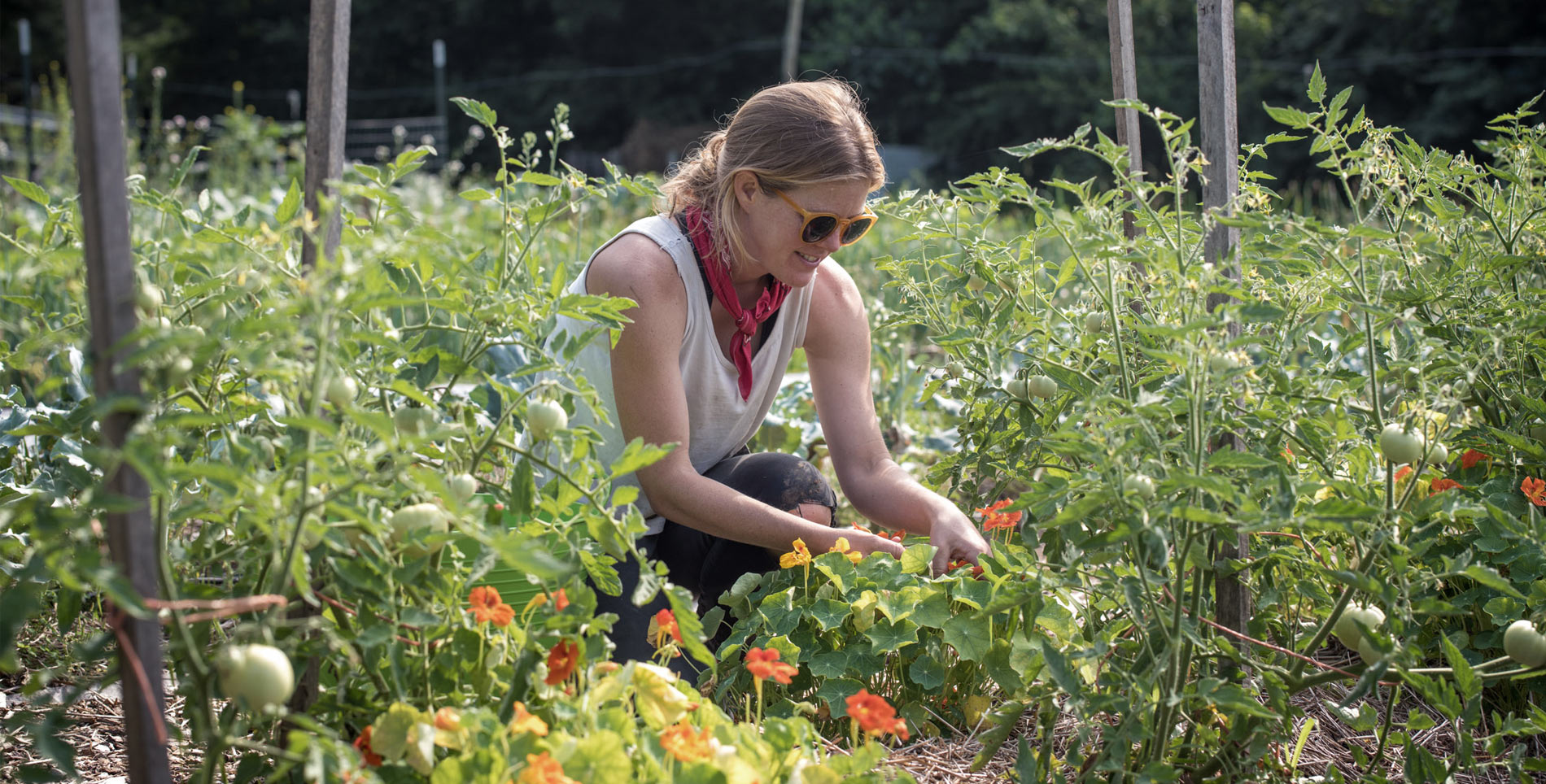Guest edited by ![]() Nicole Ziza Bauer
Nicole Ziza Bauer
Editor’s Note: Contributor Nicole Ziza Bauer has been a strong voice in the Life & Thyme community for some time, and when we decided to pursue a Guest Editor series, we knew she’d have something powerful to say. Ziza brings readers a curated collection that explore a topic to which we can all relate: being overwhelmed. We’ll share stories about using food as the foil to that feeling. About how something as simple as enjoying, cooking, or considering a meal can help us recalibrate, re-center, and rediscover the joy of eating—and reclaim ourselves. Today marks the second story in a series of four, releasing weekly.
“But little by little,
as you left their voices behind,
the stars began to burn
through the sheets of clouds,
and there was a new voice
which you slowly
recognized as your own–”
–Mary Oliver
The 2017 “State of Our Nation” survey by the American Psychological Association says sixty-one percent of respondents are stressed on the job; thirty-seven percent of those are chronically, a.k.a. they’re always stressed. Take a look around and it’s not a surprise, except for one thing: where are the stories of those who dislodged from the sixty-one percent and ended up free and breathing that grass-is-greener air?
I recently had the chance to speak with three women who walked away from sturdy career ladders and Michelin-starred glory because they found peace in the dirt—peace in the reevaluated dream. Women who stopped dead in their tracks to reevaluate and dream anew, finding a panacea in the pastoral life.
For many of us, our truest dreams get caught up in the dreams of others. We may not even feel this happening, but there we are, wondering why we feel cornered, off-kilter, or anxious as we plug away at our desks when our heart is for land, for growing tomatoes, or maybe just a slice of peace and quiet.
At some point, haven’t we all envisioned throwing down our two-week’s notice with a happy salute, or chucking our phones out the window as we drive off for a greener pasture?
Caroline McDonald swung 180 degrees from corporate desk running publicity for a music label to whipping up compost tea and cucumbers, compelled to stay home at Sounding Stone Farm, a half-acre market garden that’s now churning out lush produce to farmers markets, butcheries and restaurants.

Can you describe this new lifestyle?
McDonald: I don’t want to over-romanticize farming, but man, I wake up with the sun and end [the day] with it. Days have their own tasks, but there’s a steady rhythm. I work hard before eleven a.m. when the Tennessee heat starts to pound us. Then I duck inside to email chefs, plant seedlings, and pull shooters off the strawberries.
Do you miss what you left behind?
McDonald: Sure. I sacrifice going out to dinner. I dropped yoga. I missed my friend get married in Israel. But the cantaloupes are just starting to turn color! I keep going out to talk to them. “Hey guys,” I say, “You’re almost here. You’re almost here…”
Did you seek this change of lifestyle because you felt overwhelmed?
McDonald: My job was ill-fitting, and that’s where the sense of overwhelm comes in. When you’re banging your head against a wall, realizing that working in the music industry doesn’t have a lot to do with music after all, putting in big hours behind a desk and working my tail off for something I don’t, in the end, want to make such a sacrifice for.

Did it take years to realize you’d acquired a dream that wasn’t yours?
McDonald: Well, I whiffed during college. I should’ve had an internship in PR, since that’s what I was studying, but instead I ran off to farm. I kept doing that, I couldn’t stay away from farms, but I hadn’t admitted to myself that [farming] could be my life. Because that’s not what we’re told. Until someone asked me the question that changed my career: “Do you want to farm?”
The woman who asked was a family friend, and she knew me; she knew what I longed for. She and her family had ten acres they wanted to sustainably farm themselves, but didn’t have the capacity. I did. The hardest barrier to young farmers is entry to land, so this was my answer—free land.
This gifted land is now Sounding Stone Farm?
McDonald: I actually bought my own half-acre a while later. [I] started a microgarden, and got connected to a community of other growers.
Does the sheen wear off?
McDonald: It doesn’t for me. But I know the alternative. I tried it and lived it. Even when I had to make sacrifices—those expensive trips and restaurants—I sometimes grieve that stuff a little, but not for long. I love this. I love processing blueberries for two days straight. I love potlucks with other farmers. I love walking out at night to pick veggies and herbs for dinner. Every single time I get out there, I love it. And I’m thankful.
From the get-go in 2013, Elise Kornack and Anna Hieronimus, the couple behind the celebrated Brooklyn twelve-seat restaurant Take Root, ran a gutsy, unconventional endeavor. Choosing a quiet Brooklyn neighborhood, the two-woman team who operated front and back of house serving Kornack’s tasting menu in what felt like a simple, homey diningroom run entirely by themselves with no additional help. And the restaurant racked up accolades, even earning a Michelin star—before they decided to close the doors after four years of business.
What happened to turn the course for you?
Kornack: One day out of nowhere, I woke up and my whole body felt like it was crying for help. Anna and I thought it was everything other than stress. I started getting tests—the doctor said, “Let’s clear your mind of all your fears, all your WebMD personal diagnoses, and see what we’re dealing with.” We did MRIs and CAT scans. We ruled out brain tumors. Finally, we said I should try a therapist. I wasn’t laughing. I wasn’t spending time with friends or getting outside.
What changed in those four years of running Take Root?
Kornack: We let social media, feature stories, and guests define what we were going to do and how we would do it. I got to a point where I dreaded coming out of the kitchen.
What changed in your relationship to food?
Kornack: When we owned Take Root and even twelve years before when I was in other restaurants, I didn’t really cook for anybody outside of the restaurant. I struggled a lot cooking for friends or family. I was so used to cooking for paid guests; I couldn’t stop being a perfectionist. I would agonize over making a bowl of pasta for a house guest.
Hieronimus: We had to stop having people over.

What was the feeling when you shut the Take Root doors for the last time?
Hieronimus: We had completely different reactions. For Elise, Take Root was her studio. She spent so much time alone there, working solo in that kitchen because we were the only employees, and I wasn’t in the kitchen much until diners arrived. It was her private, safe space to create where no one else was present. It was harder for Elise to let go of that physical place.
Kornack: When Anna walked out of the doors for the last time you could see immediate relief. The adjustment came in finding a place to put her energy. When you’ve let go of something that’s given you purpose and identity, that’s an adjustment.
How did you approach your first days in your new life, in the quiet of upstate New York?
Hieronimus: We’d been coming up here on weekends in the winter whenever we could get away from the restaurant, so we already had a sense of how it felt to be in this community and landscape. When we closed Take Root and found a home up here, we knew we just wanted to get healthy. We were really intentional about not doing anything—not plan a next project, not start anything.
Kornack: We slept, met locals, foraged for mushrooms, built some amazing friendships, and took walks. We’re still doing that.
How does it feel being in such a different environment from New York City?
Hieronimus: A guy at the hardware store said to me, “You’ll calm down.” They told us our speech would start to get slower, that our nerves would settle. In my twenties, the city was fine for me. But the pace, the frequency pushed me to a place where I was anxious and angry. It took some time up here to settle down, but that’s what happened. We calmed.
Kornack: That’s been changing for me up here, over time. I’m enjoying it again, cooking at home. I’ve fallen in love with cooking over live fire. I love the unpredictable nature of it and the focus it requires to cook with something as powerful as fire—something I can practice and play with, now that we have land and open air. I’ve been reading old cookbooks from the region, reading poetry, writing and historical accounts of what life was like the last three hundred years in the Catskills. Sometimes I find a recipe from 1830 for a way to make yogurt; other times it is a story of an unruly woman with a cause, or a farmer who fought for his parcel of land. I keep track of these tidbits and set them aside for putting together recipes and menus that will help tell the story of the past and help shape the future of the Catskills’ culinary identity.
Hieronimus: We really want to understand this upstate community and experience the seasons—how the landscape changes, the people who come in and out of town, what sort of culinary identity it already has, and what we can help call out of it. We’re paying attention. Yes, we’ll open a restaurant here—build it from the ground up, differently this time, with way more flexibility. And we’re not going to run it alone. There’s a logistical starting point. We’ve learned.
To the public eye, closing Take Root might have felt abrupt. But you seem to do things in a gentle pivot. Is that important, this slow shifting?
Hieronimus: Yes. Gradual transitions are so important. Do it in stages, not cold turkey. We knew for a few years we’d leave the city, but we didn’t leave. We rented a tiny loft in Hudson Valley, getting a sense of the departure.
What advice might you offer someone considering a significant change of life or career?
Kornack: Talk through what you’re experiencing and what you might need. Get some unbiased opinion. Then I’d say trust your intuition. Anna and I made five huge decisions all at one time, and I was like, “We’re still okay.” So I trust us more now. I trust us.







Our comments section is for members only.
Join today to gain exclusive access.